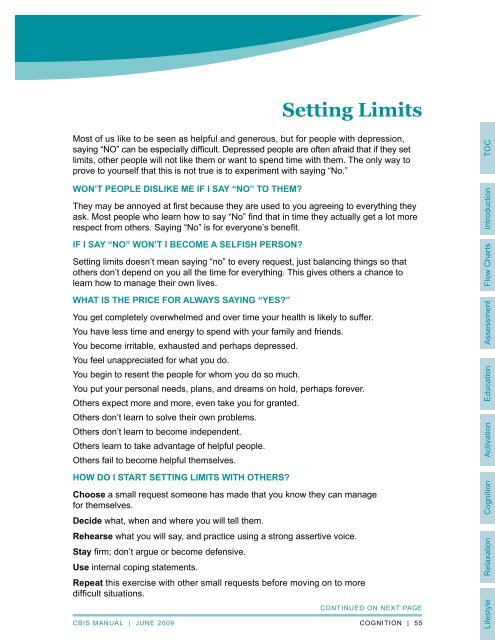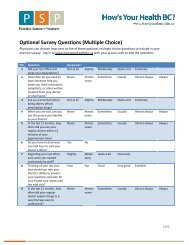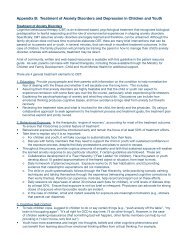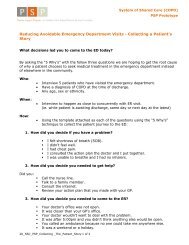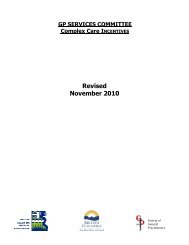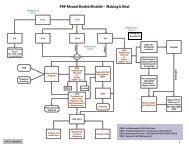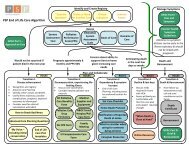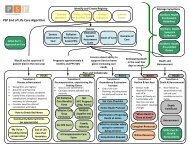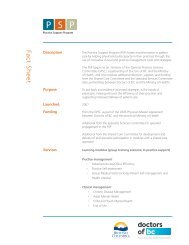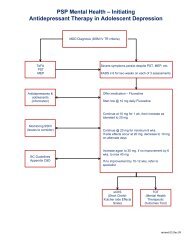cognitive behavioural interpersonal skills manual - GPSC
cognitive behavioural interpersonal skills manual - GPSC
cognitive behavioural interpersonal skills manual - GPSC
- No tags were found...
Create successful ePaper yourself
Turn your PDF publications into a flip-book with our unique Google optimized e-Paper software.
Setting LimitsMost of us like to be seen as helpful and generous, but for people with depression,saying “no” can be especially difficult. Depressed people are often afraid that if they setlimits, other people will not like them or want to spend time with them. The only way toprove to yourself that this is not true is to experiment with saying “No.”Won’t people dislike me if I say “No” to them?They may be annoyed at first because they are used to you agreeing to everything theyask. Most people who learn how to say “No” find that in time they actually get a lot morerespect from others. Saying “No” is for everyone’s benefit.If I say “No” won’t I become a selfish person?Setting limits doesn’t mean saying “no” to every request, just balancing things so thatothers don’t depend on you all the time for everything. This gives others a chance tolearn how to manage their own lives.What is the price for alWAys saying “Yes?”You get completely overwhelmed and over time your health is likely to suffer.You have less time and energy to spend with your family and friends.You become irritable, exhausted and perhaps depressed.You feel unappreciated for what you do.You begin to resent the people for whom you do so much.You put your personal needs, plans, and dreams on hold, perhaps forever.Others expect more and more, even take you for granted.Others don’t learn to solve their own problems.Others don’t learn to become independent.Others learn to take advantage of helpful people.Others fail to become helpful themselves.How do I start setting limits with others?Choose a small request someone has made that you know they can managefor themselves.Decide what, when and where you will tell them.Rehearse what you will say, and practice using a strong assertive voice.Stay firm; don’t argue or become defensive.Use internal coping statements.Repeat this exercise with other small requests before moving on to moredifficult situations.Continued on next pageCBIS Manual | JunE 2009cognition | 55


